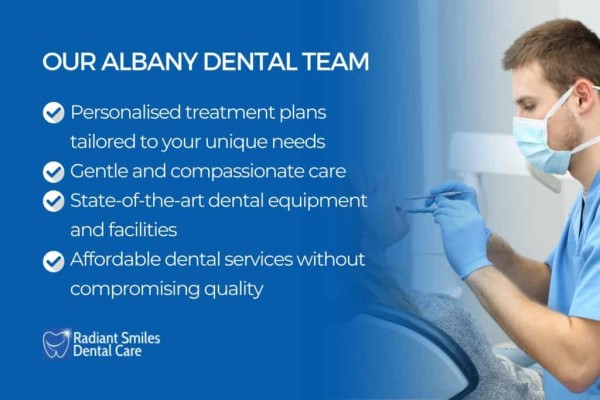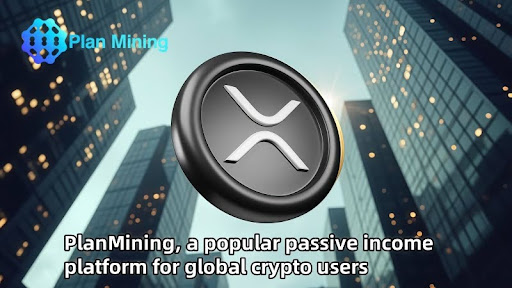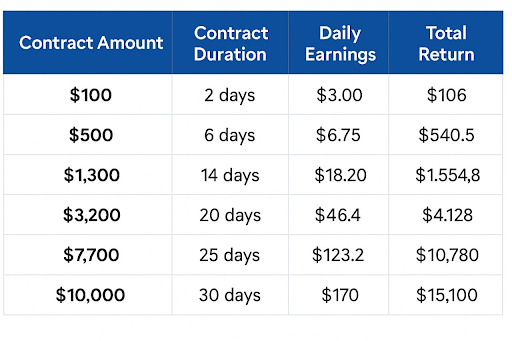London, UK, 22nd August 2025, ZEX PR WIRE- With the launch of Bitcoin and Ethereum ETFs, coupled with favorable U.S. cryptocurrency legislation, the global cloud mining market is experiencing a boom. As a leading platform, BJMINING has recently attracted millions of investors, achieving a user growth rate of up to 300%. Many users, through high-value contracts, are realizing stable passive income exceeding $7,000 per day, making it a new hotspot in crypto investments.

BJMINING was established in 2015 and is headquartered in London, UK. It is a globally renowned cloud mining service provider that has served over 5 million users across more than 180 countries. The company owns more than 60 green energy mining farms, deploys 1.2 million high-performance mining machines, and utilizes AI optimization algorithms to ensure a 99.9% stable uptime rate. BJMINING supports mining for various cryptocurrencies including Bitcoin (BTC), Ethereum (ETH), Solana (SOL), Ripple (XRP), and Dogecoin (DOGE). The platform holds international compliance certifications and covers user assets with AIG insurance.
BJMINING’s Core Advantages
Low Entry Barrier: No need to purchase hardware or pay electricity fees; new users receive $15 trial funds upon registration for one-click mining startup.
High and Stable Returns: Daily earnings are automatically settled, supporting instant withdrawals or reinvestments, with maximums up to $9,000 per day, resilient to market volatility.
Green and Sustainable: Utilizes wind, hydro, and solar energy to promote carbon neutrality and reduce environmental impact.
Secure and Reliable: Integrated with McAfee and Cloudflare dual protection, EV-SSL encryption, and multi-factor authentication to safeguard funds and data.
Global Expansion: Multi-currency deposits and withdrawals, with an invitation rebate mechanism (3% direct referral, 2% indirect), offering unlimited income potential.
User-Friendly: Suitable for beginners and professional investors, with simple operations and mobile app support for mining.
These advantages enable BJMINING to stand out in both bear and bull crypto markets, helping investors achieve asset preservation and growth.

The following are examples of popular BJMINING contracts:
| Contract Project | Investment Amount | Duration | Total Earnings |
| WhatsMiner M50S+ | $100 | 2 days | $100 + $6 |
| WhatsMiner M60S++ | $600 | 7 days | $600 + $52.50 |
| Avalon Miner A1566 | $1,200 | 15 days | $1,200 + $234 |
| WhatsMiner M66S+ | $5,800 | 30 days | $5,800 + $2,610 |
| Antminer L7 | $12,000 | 40 days | $12,000 + $8,160 |
| ANTSPACE HD5 | $96,000 | 54 days | $96,000 + $119,232 |
These contracts support instant activation, allowing users to upgrade in line with market dynamics and achieve daily earnings of over $7,000. As the cryptocurrency market continues to heat up, BJMINING is leading a new era of cloud mining, already serving more than 5 million users worldwide. With advanced technology and sustainable operations, the platform helps investors navigate volatility with ease and achieve steady growth. Looking ahead, BJMINING will further expand its global presence, bringing more innovative opportunities. Don’t miss this wave—register now and start your journey to passive wealth!
For more information, please visit: bjmining.com
Click here to download the official application: BJMINING APP
Disclaimer: The information provided in this press release does not constitute an investment solicitation, nor does it constitute investment advice, financial advice, or trading recommendations. Cryptocurrency mining and staking involve risks and the possibility of losing funds. It is strongly recommended that you perform due diligence before investing or trading in cryptocurrencies and securities, including consulting a professional financial advisor.



























